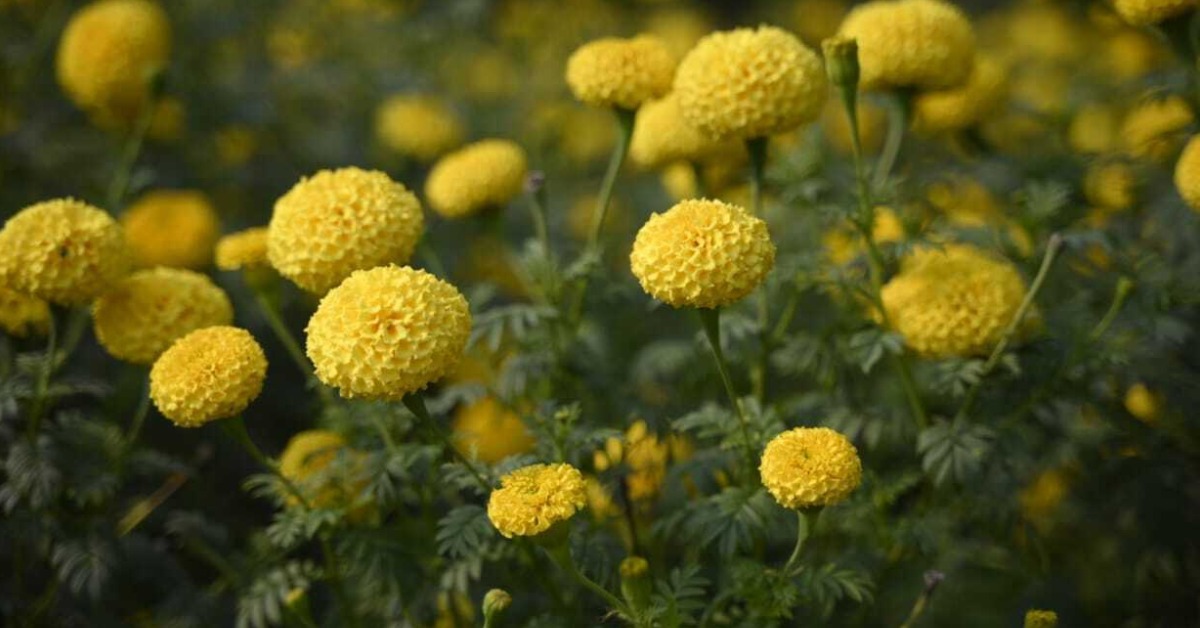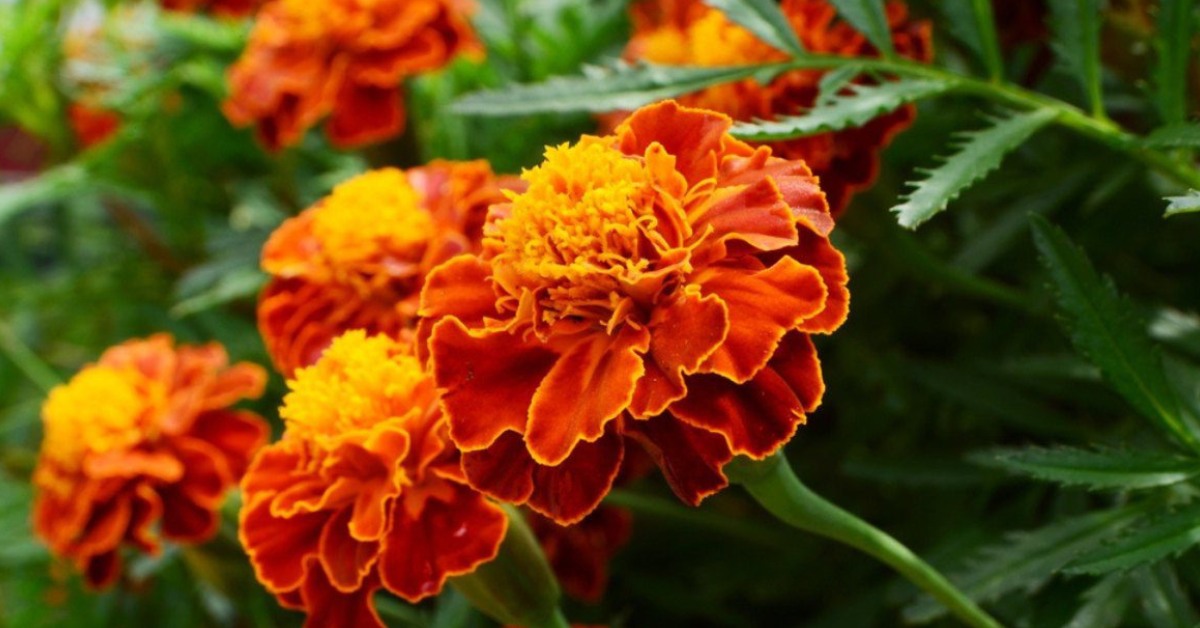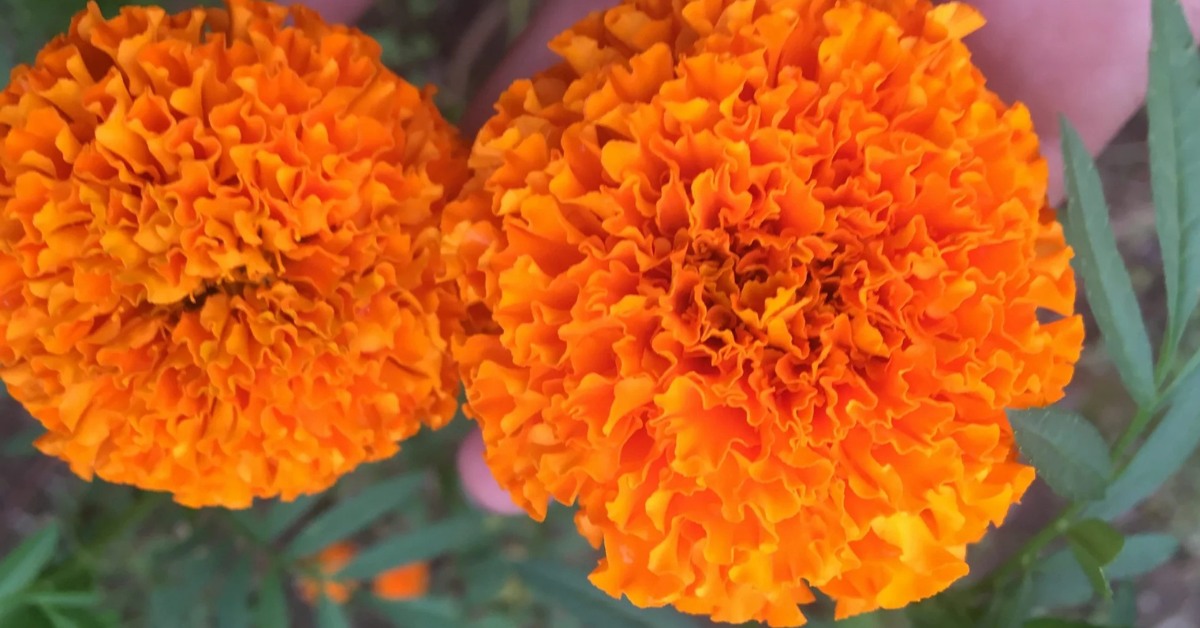Marigold Farmer From West Bengal Shares How He Built a Rs 50 Lakh-a-Month Business
Marigolds, those bright orange and yellow blooms that light up our festivals, weddings, and temples, are more than just decorations. In one small town in West Bengal, they sparked a full-blown entrepreneurial journey.
For Arup Kumar Ghosh, growing up in the flower-rich town of Kolaghat, West Bengal, marigolds were not just beautiful flowers. They became a source of inspiration and opportunity for the farmer-turned-entrepreneur. With patience and hard work, Arup turned his early curiosity into a stable marigold farming business that now brings in around Rs 50 lakh every month.
So, how did he do it? And more importantly, can you do it too?
Here are a few steps Arup followed that might just inspire your own farming dream.
1. Know your market first with humble beginnings!
Arup did not jump into farming right away. After dropping out of college, he spent time working in Hyderabad’s Gudimalkapur Flower Market.
 After doing proper research, Arup started doing Tennis Ball marigold farming in Kolaghat
After doing proper research, Arup started doing Tennis Ball marigold farming in Kolaghat
“My job involved assisting in the sale of flowers like marigold strings and tube roses,” he says. “During my time there, I learnt that flowers from Kolaghat were being sent to Hyderabad’s flower market. This made me realise that I could return to my hometown and start my venture in this growing industry,” he adds.
Before jumping into farming, Arup began by trading flowers. It was the perfect way to get his hands dirty without getting into the fields just yet. He learnt which flowers sold the most, how prices fluctuated, and what it takes to deal with customers and vendors. He even started buying marigold strings from Kolaghat at Rs 120 and selling them locally for Rs 140–150 — a small profit, but a big confidence boost!
Tip for you: Try your hand at flower trading first. It’s a low-risk way to understand the market, from demand and pricing to how the supply chain works.
2. Avoid big investments, lease a land for starters
When the farmer decided to grow marigolds himself, he leased a small plot of land instead of buying it outright. He leased a two-bigha (roughly 28,800 square feet) plot of land to experiment with marigold farming.
 Beginners are advised to lease a land before starting marigold farming, to avoid extra costs
Beginners are advised to lease a land before starting marigold farming, to avoid extra costs
Leasing means less upfront cost and risk, perfect for beginners who are still testing what works best. Arup’s initial investment was around Rs 12,000, covering the lease, saplings, and transport.
For you: Lease a small plot first. It gives you room to experiment without huge financial pressure.
3. Bring in the experts to know what you sow
Determined to improve, Arup went beyond his local market. He travelled to Thailand for six months to learn about better marigold varieties and farming techniques.
“I learnt about a high-quality flower called the Tennis Ball marigold variety. This is prized for its bright, round flowers and its ability to withstand long-distance shipping without being damaged,” he explains.
He brought back 25 grams of Tennis Ball marigold seeds, which proved to be beneficial for his farm.
For you: If you want success, invest time in learning. Look for expert advice or training, and don’t hesitate to explore superior seed varieties that perform better commercially.
 You can try your hand at seed ans sapling production of marigold to earn extra profits
You can try your hand at seed ans sapling production of marigold to earn extra profits
4. Cultivate quality flowers and produce your own seeds
Arup’s Tennis Ball variety seeds produced healthier and larger flowers that caught the attention of markets across India.
“The flowers were of better quality, and I could ship them to different cities like Gujarat, Hyderabad, Lucknow, Kanpur, Delhi, Ayodhya, Allahabad, and Rajasthan. The market responded positively, and soon, farmers from across India began approaching me for seeds and saplings,” he says.
Beyond just selling flowers, Arup took it a step further — he started producing his own seeds and saplings. Not only did this give him better control over quality, but it also opened up a whole new way to earn.
For you: Don’t stop at just growing flowers. Try your hand at seed and sapling production too. It’s a smart way to diversify your income and reach more customers, especially those who want to start their own gardens!
5. Manage water, weather, and pests the natural way
Growing flowers is not just planting and watering. It requires nurturing and care. The farmer faced many challenges, especially due to waterlogging in the monsoons and controlling the pests.
 You can use natural treatments like neem oil and cow dung manure to keep pests away during marigold farming; Picture source: Housing
You can use natural treatments like neem oil and cow dung manure to keep pests away during marigold farming; Picture source: Housing
“The key is ensuring the fields don’t retain too much water during the monsoon,” he explains. He set up efficient drainage systems to prevent crop damage.
For pests, instead of harmful chemicals, he relies on natural treatments. “I use neem oil, bone dust, and cow dung manure. These methods are gentle on the plants and the environment, helping keep pests in check without harming the crops,” he says. He also protects crops from harsh weather by covering the fields with nets.
For you: Invest effort in managing water drainage correctly. Protect your plants from pests naturally by using natural remedies that are environment-friendly. Make sure to provide them shelter from extreme weather because healthy plants mean better yields.
6. Slowly and steadily, scale up and diversify
From two bighas, Arup’s farm expanded to 73 bighas (10,51,200 square feet), growing orange, yellow, and red marigolds. His farm now sells millions of saplings and kilograms of seeds and flowers annually.
 You can expand your marigold farm slowly, once you start earning profits, and grow different varieties
You can expand your marigold farm slowly, once you start earning profits, and grow different varieties
“During the peak harvest months, my farm yields between 800 and 1000 kg of marigold flowers daily,” he shares.
For you: Expand slowly as you build confidence and demand. Diversify your flower varieties to attract more profits!
Edited by Saumya Singh
News